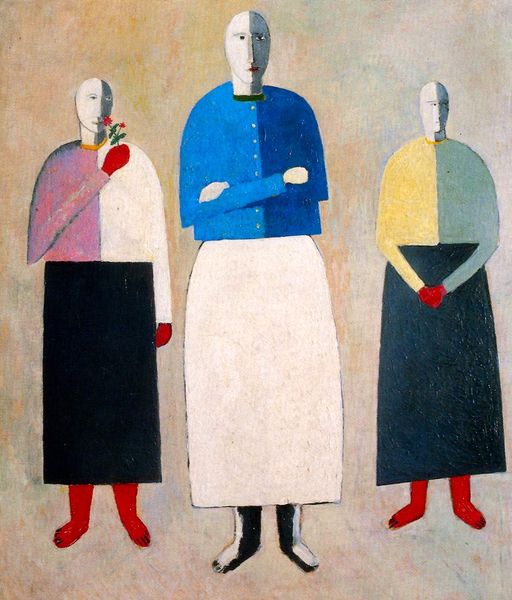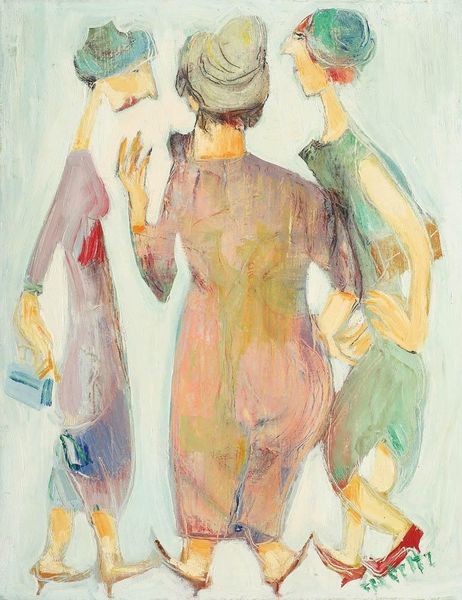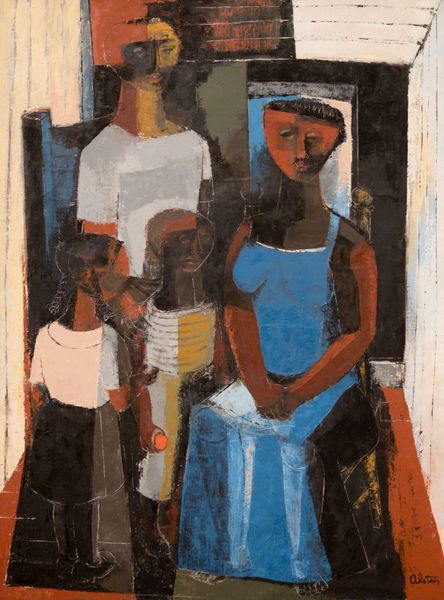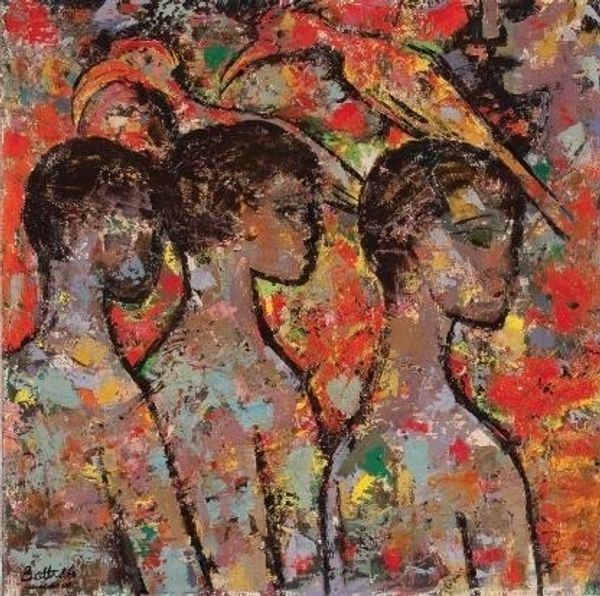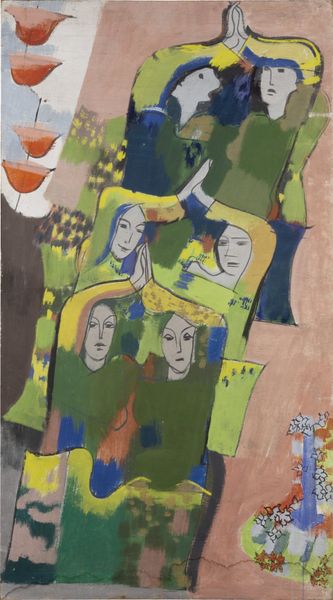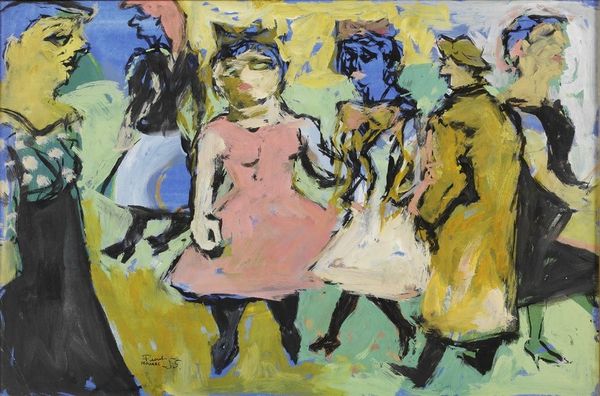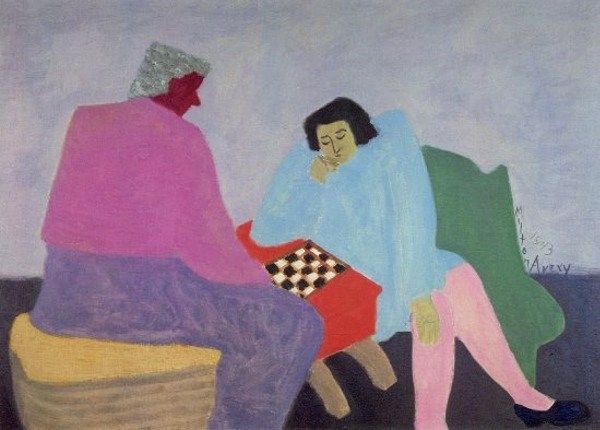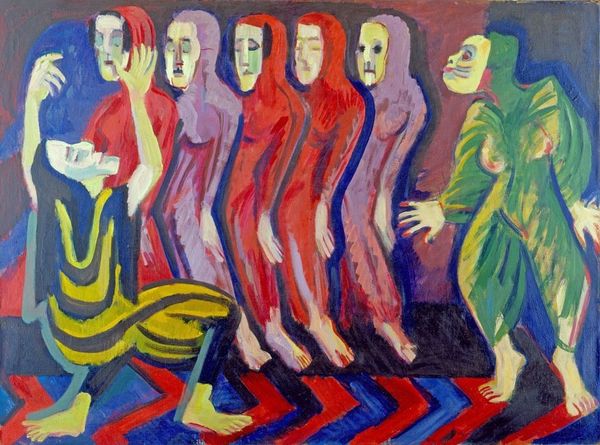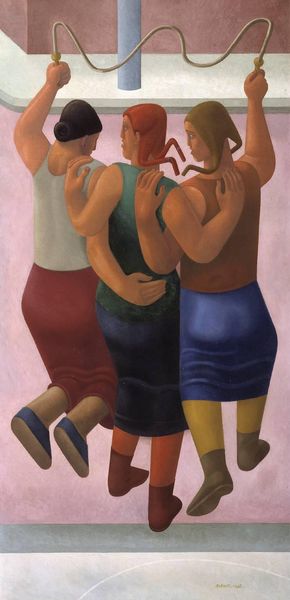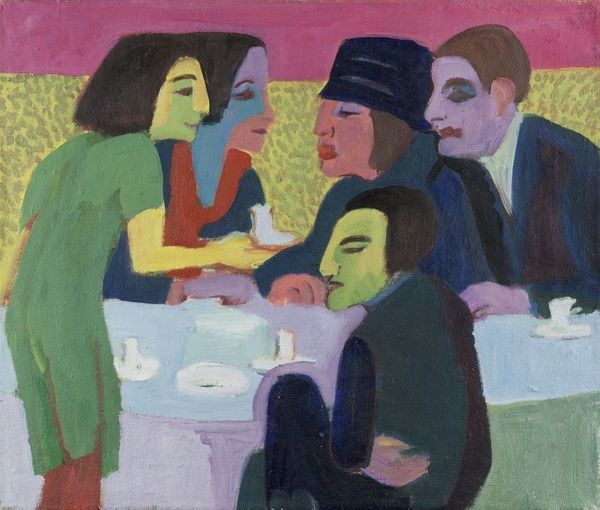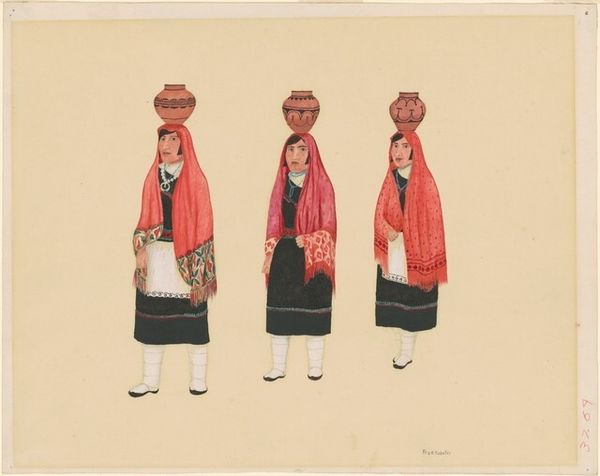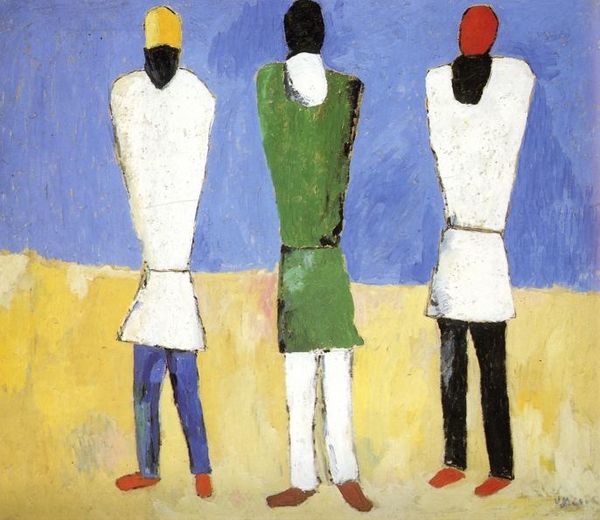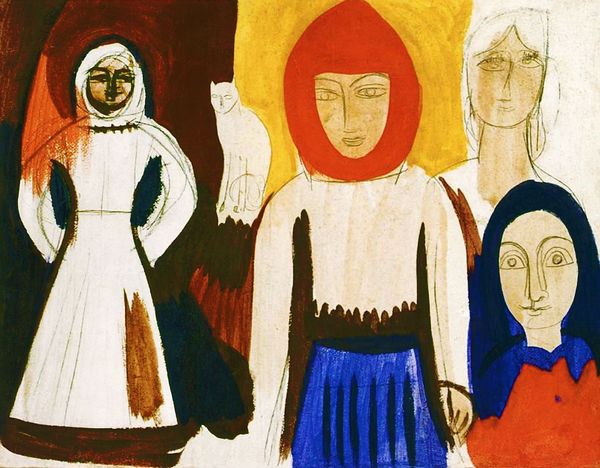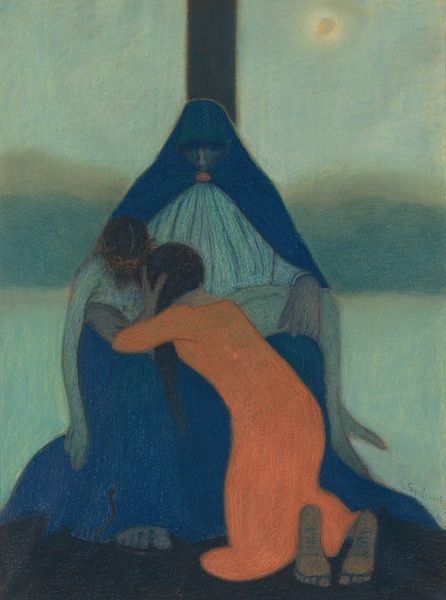
Copyright: Public Domain: Artvee
Curator: Let's take a look at Léon Spilliaert's "Meisjes met witte kousjes," or "Girls with White Stockings," created around 1912, employing watercolor on cardboard. Editor: A somewhat unsettling arrangement, isn't it? Their facelessness, coupled with the muted color palette, lends an aura of detached observation, almost clinical. Curator: Spilliaert, working outside established movements, often depicted figures isolated within bleak landscapes. He experienced depression; his worldview shaped his production, I believe. Considering his personal history and Belgian social history at the time, this work resonates with themes of societal restriction and anonymous labor. These girls are possibly on their way to work. Editor: Yes, but it is the formal choices that convey this feeling. The repetition of shapes and forms: the near identical dresses, stockings, and the unwavering verticality of their hair create a sense of robotic sameness. The white stockings could almost be read as signifying innocence corrupted by early industrial labour. Curator: Interesting reading. These girls might have been headed for the linen mills where even girls were forced into extremely long and unhealthy shifts at the time in Belgium. The production process becomes a societal process here as much as Spilliaert’s aesthetic process. Editor: I wonder, too, about his application of watercolour in layered planes of colour that only partly veil the textured surface beneath. It is the medium as a metaphor, revealing and concealing the true subject of representation which is childhood or early adulthood on the threshold of the social, but somehow denied full subjecthood by its rendering. Curator: I am also interested in the process and in how Spilliaert positions us, the viewers. As passive observers removed from any connection or shared empathy. Editor: A powerful rendering by the artist of detachment as an overriding concern that defines what labour, adolescence, and social conditions imply. Curator: Indeed, Spilliaert exposes how we create this society one process at a time.
Comments
No comments
Be the first to comment and join the conversation on the ultimate creative platform.
